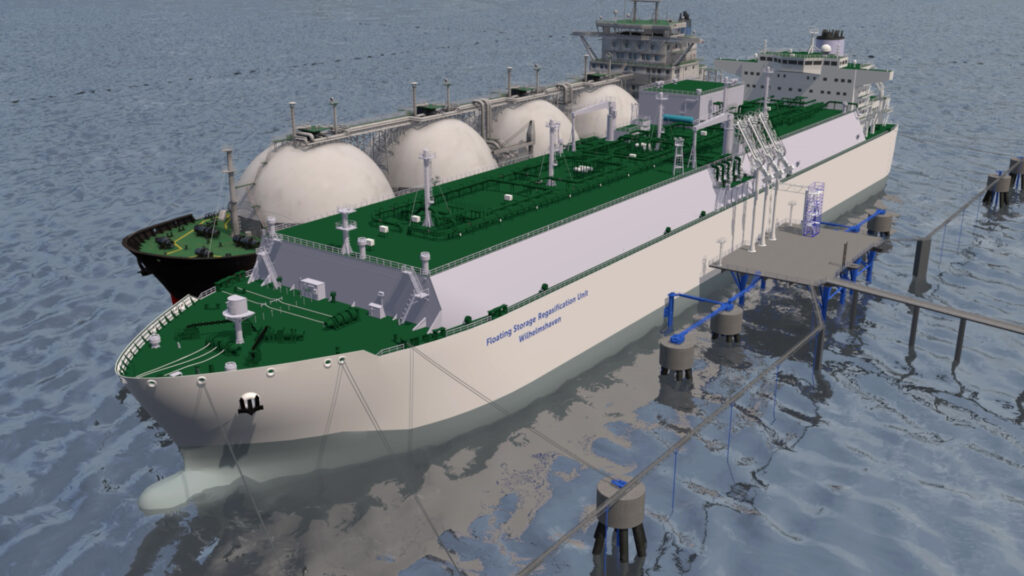Germany has decided to accelerate work to build two LNG terminals in the country to help reduce dependence on Russian gas imports, Chancellor Olaf Scholz said Feb. 27.

In an address to the German Parliament, Scholz also said Germany would look to increase its gas stocks by 2 Bcm through the use of long-term storage options and buy gas in coordination with the EU.
"We will do more to ensure our country's energy security and we will change course in order to overcome our import dependency on single energy suppliers," Scholz said.
"The events of the last few days and weeks have shown us that a responsible, forward-looking energy policy is not only crucial for our economy and our climate. But also crucial for our security," he said.
Germany is particularly dependent on Russian gas imports to meet demand.
Russia's state-controlled Gazprom sold 45.8 Bcm of gas in Germany in 2020, and increased sales by 10.5% last year, implying a total of 50.6 Bcm in 2021.
Germany is a major gas importer given its high demand and low domestic production, and its net gas imports were around 84 Bcm last year, implying that Russia accounted for around 60% of German gas imports last year.
Scholz said Germany needed to make "important decisions" including on the build-out LNG import infrastructure. "We have decided to quickly build two LNG terminals at Brunsbuttel and Wilhelmshaven," he said, adding that LNG terminals could also handle green hydrogen in the future.
LNG projects
Germany has no LNG import terminals at present, with two projects currently in the development stage -- the 8 Bcm/year terminal at Brunsbuttel and a 12 Bcm/year facility at Stade.
Germany's Uniper in 2020 abandoned plans for a 10 Bcm/year floating LNG import terminal at Wilhelmshaven, instead looking at the site for hydrogen imports.
Scholz's comments suggest an FSRU at Wilhelmshaven could be brought back to the table.
The Brunsbuttel project was hit by a setback in November 2021, when Dutch storage company Vopak said it had decided to end its "active participation" in the project.
Vopak was one of three companies that formed the German LNG Terminal (GLT) development company together with Dutch gas grid operator Gasunie and Germany's Oiltanking.
And Hanseatic Energy Hub -- developer of the Stade facility -- has pushed back the binding capacity process for the site until later in 2022 due to the current market volatility.
Germany is linked directly to Russia via the 55 Bcm/year Nord Stream pipeline and can also import Russian gas via Belarus, Poland and Ukraine.
It also imports significant volumes from Norway and the Netherlands, as well as having small domestic production and links with other neighbors.
Storage capacity
Scholz also said Berlin would look to build a reserve of coal as well as gas. "We have decided to increase the storage volume of natural gas by 2 Bcm via so-called long-term options," he said. "In addition, we will purchase additional gas on the world markets in coordination with the EU."
The European Commission is expected to make new proposals soon on requirements for member states to hold minimum gas storage levels as well as helping countries with joint gas procurement to help build stocks.
Germany already has access to significant storage capacity -- the biggest in the EU -- at around 23 Bcm, according to Gas Infrastructure Europe data.
However, as of Feb 25, German storage sites were just 29.7% full, the data showed.
Russia's state-controlled Gazprom owns significant capacity in Germany, including at Rehden, Katharina and Jemgum, but stocks at the facilities remain very low after Russia failed to refill them over the past summer.
Economy minister Robert Habeck last week said Germany was looking to use incentives and regulation to ensure operators fill their storage sites, rather than considering the creation of a national strategic gas reserve overseen by the government.
Source: SPGlobal